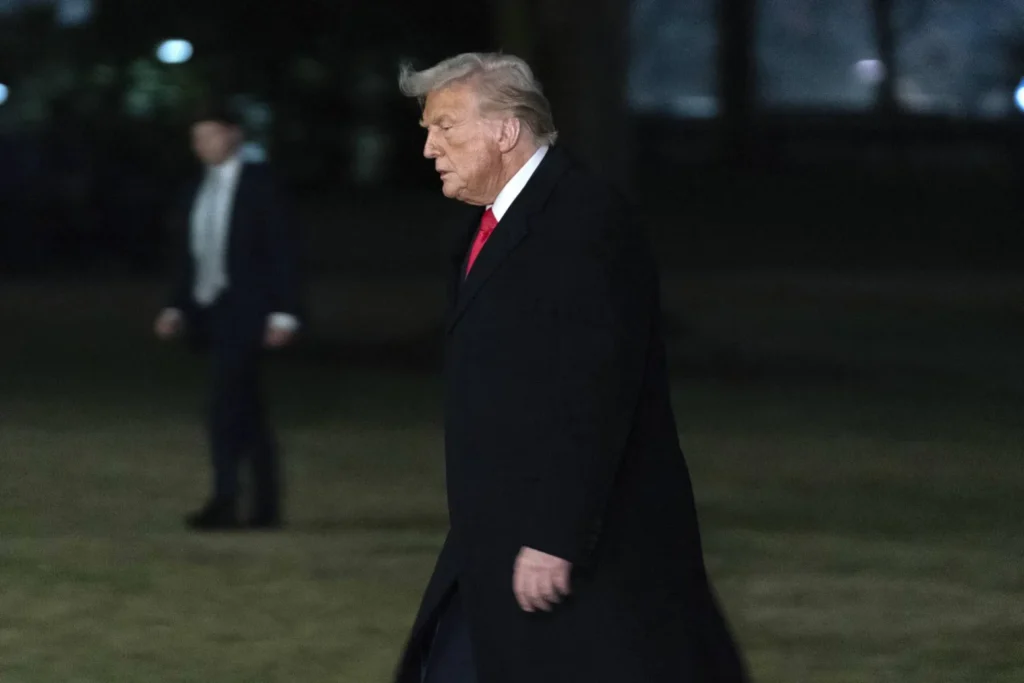- Web
- Feb 05, 2026
Trump unveils 25% tariffs on steel and luminum imports, targeting all countries
-

- Web Desk Karachi
- Feb 10, 2025

WASHINGTON: President Donald Trump is set to implement a 25 percent tariff on all steel and aluminum imports into the United States, escalating his trade measures and potentially straining relationships with some of the nation’s key trading partners.
While speaking to reporters aboard Air Force One on Sunday, Trump confirmed that these tariffs would apply to imports from all countries, including major suppliers such as Mexico and Canada, stating that “everybody” would be affected. He did not indicate when these duties would come into effect.
Additionally, Trump announced plans to introduce reciprocal tariffs this week targeting countries that impose taxes on US imports, which would be implemented “almost immediately” following the announcement, though he did not provide further specifics.
This latest decision marks the continuation of Trump’s recent series of proposed tariffs that have unsettled markets. However, it remains unclear whether he will enact these tariffs, as he had previously announced but then deferred tariffs on Canada and Mexico while moving ahead with levies on China.
The US heavily depends on aluminum imports from countries such as Canada, the UAE, and Mexico, with net imports constituting more than 80 percent of demand in 2023, according to Morgan Stanley. Although steel accounts for a smaller share of overall consumption, it is crucial for industries relying on specialized grades, including aerospace, automotive manufacturing, and energy sectors ranging from wind energy producers to oil drillers.
After Trump’s announcement, Asian markets showed relative stability on Monday. In Singapore, benchmark iron ore prices, essential for steel production, rose by 0.1 percent around 11:45 a.m. local time, following slight increases in three-month aluminum futures on the London Metal Exchange. US futures on Comex saw a 0.5 percent rise amidst light trading activity.
One analyst noted, “This round of 25 percent tariffs on steel is likely to negatively impact market sentiment for ferrous commodities. It may take two to three days for the market to adjust, leading to potential price declines.”
Also read: Canada to file WTO claim against Trump tariffs
Industry stakeholders anticipated that they would have until March to prepare for these tariffs, leaving both buyers and sellers scrambling to find alternative markets and suppliers for their goods.
Exporters like South Korea, which ships both aluminum and steel to the US, are already exploring new markets. Currently, South Korea’s steel exports are about 70 percent of the annual average from 2015-2017 prior to the onset of the first wave of Trump’s trade actions; despite this, the U.S. remains its largest steel market. The South Korean trade ministry stated they are carefully observing the evolving US situation.
Trump did not specify if metal imports from China would incur additional tariffs, given that he had previously applied a 10 percent tariff on Chinese goods.
In retaliation to the proposed blanket tariffs, Beijing announced measures last week aimed at US products valued at $14 billion, which are set to take effect on Monday and are more selectively targeted.
Australian Prime Minister Anthony Albanese revealed on Monday that he intends to discuss with Trump the possibility of securing an exemption for Australia’s steel and aluminum exports during their scheduled conversation.




